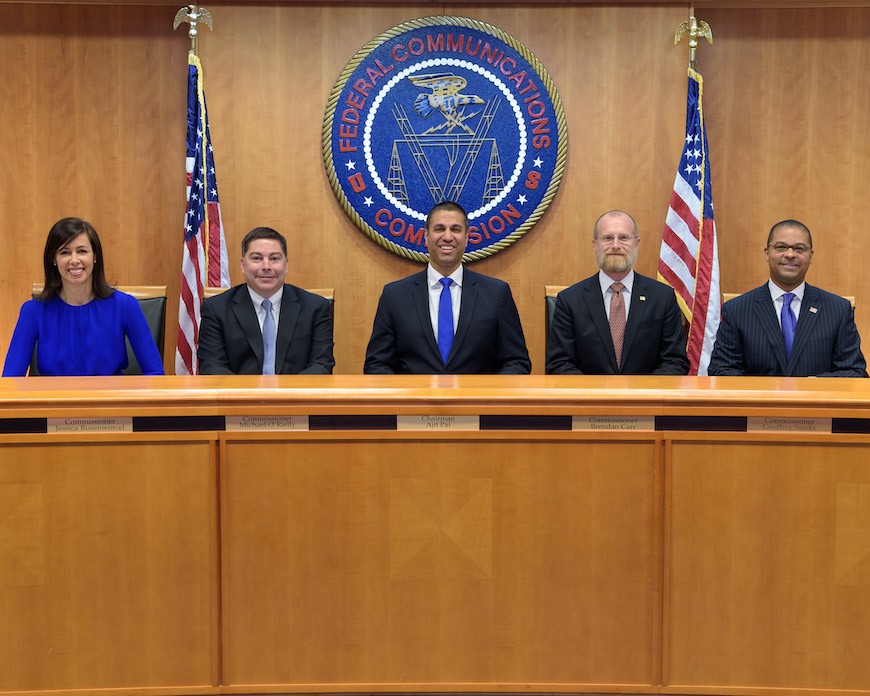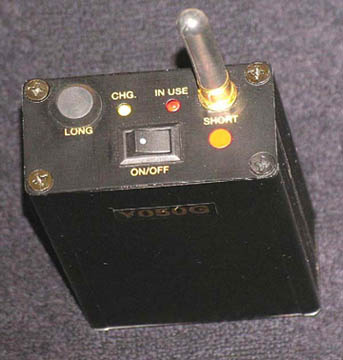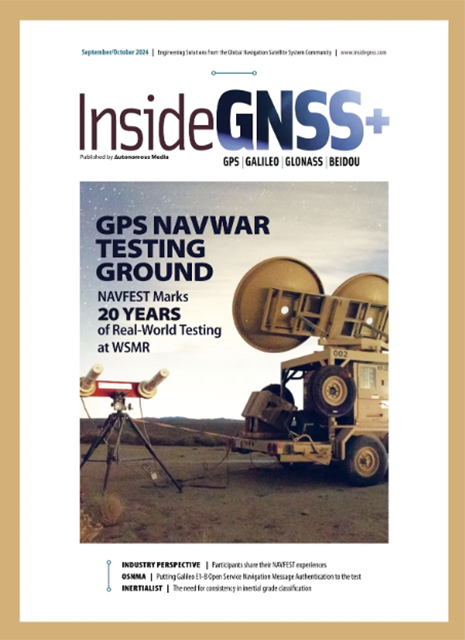“Ligado’s planned usage will likely harm military capabilities, particularly for the U.S. Space Force, and have major impact on the national economy,” two ranking Senators and a Representative wrote. The timing could not be worse, they said to allow what “is fundamentally a bad deal for America’s national and economic security.”
The Federal Communications Commission announced April 16 that Chairman Ajit Pai is circulating a draft proposal within the Commission that would approve a plan by Ligado Networks to use frequencies neighboring those used by GPS for a 5G terrestrial service.
“After many years of consideration, it is time for the FCC to make a decision and bring this proceeding to a close,” said Chairman Pai in a statement. “We have compiled an extensive record, which confirms that it is in the public interest to grant Ligado’s application while imposing stringent conditions to prevent harmful interference. The draft order that I have presented to my colleagues would make more efficient use of underused spectrum and promote the deployment of 5G and Internet of Things services.”
Extensive testing has shown that the firm’s plan to repurpose frequencies allocated for satellite use to also support a ground-based 5G service would interfere with GPS receivers — hampering, in particular, the operation of high-precision receivers.
Pai said that he appreciated the concerns that had been raised by certain federal agencies but it was the Commission’s duty to make an independent determination.
“Based on the painstaking technical analysis done by our expert staff,” he said, “I am convinced that the conditions outlined in this draft order would permit Ligado to move forward without causing harmful interference. For example, the draft order would authorize downlink operations at a power level that represents a greater than 99% reduction from what Ligado proposed in its 2015 application.”
The order, the announcement said, “would require Ligado to protect adjacent band incumbents by reporting its base station locations and technical operating parameters to potentially affected government and industry stakeholders prior to commencing operations, continuously monitoring the transmit power of its base station sites, and complying with procedures and actions for responding to credible reports of interference, including rapid shutdown of operations where warranted.”
“The Chairman’s action is difficult to believe and accept,” said Dana Goward president, of the Resilient Navigation & Timing Foundation. “He says he is acting based upon ‘painstaking technical analysis by our technical staff.’ Given the eight-year and very contentious history of this issue and widespread national and economic security concerns, it is inconceivable that this analysis was not shared with the public for open and transparent discussion prior to him putting it to a vote.”
The announcement comes on the heels of a letter from a bi-partisan trio of leaders from the House and Senate Armed Services Committiees asking the president to help stop approval which they said threatened the usability of civil and military GPS receivers across the United States and could further hurt the economy.
Senators Jim Inhofe (R-Oklahoma) and Jack Reed (D-Rhode Island), chairman and ranking member of the Senate Armed Services Committee, and Rep. Mac Thornberry (R-Texas), ranking member of the House Armed Services Committee appealed directly to President Donald Trump to use his influence to prevent the FCC from allowing Ligado Networks to change how it uses its spectrum.
“Ligado’s planned usage will likely harm military capabilities, particularly for the U.S. Space Force, and have major impact on the national economy,” the congressmen wrote. The timing could not be worse, they said to allow what “is fundamentally a bad deal for America’s national and economic security.”
Underscoring the potential impact on businesses the lawmakers noted that the GPS satellite signals enable much of daily American life.
“These GPS satellites quietly power our economy,” they said, “by providing free precise timing and navigation to our financial and banking sector, agriculture, our logistics and tourism companies, our power grid and cell phone businesses, commercial aviation, space launch and space operations, weather, construction and mining vehicle guidance, as well as surveying and mapping.”
“These satellites contribute $1 billion to the economy every single day,” they wrote — noting that that was based on a conservative estimate. The GPS satellite signals “are necessary for trillions of dollars in financial transactions in the stock markets. The functions provided by our GPS satellites will be all the more important to enable a rapid economic recovery from the effects of COVID-19. Ligado’s plan would hinder GPS functions for the entire American economy.”
Photo: FCC Commissioners. Courtesy FCC.






